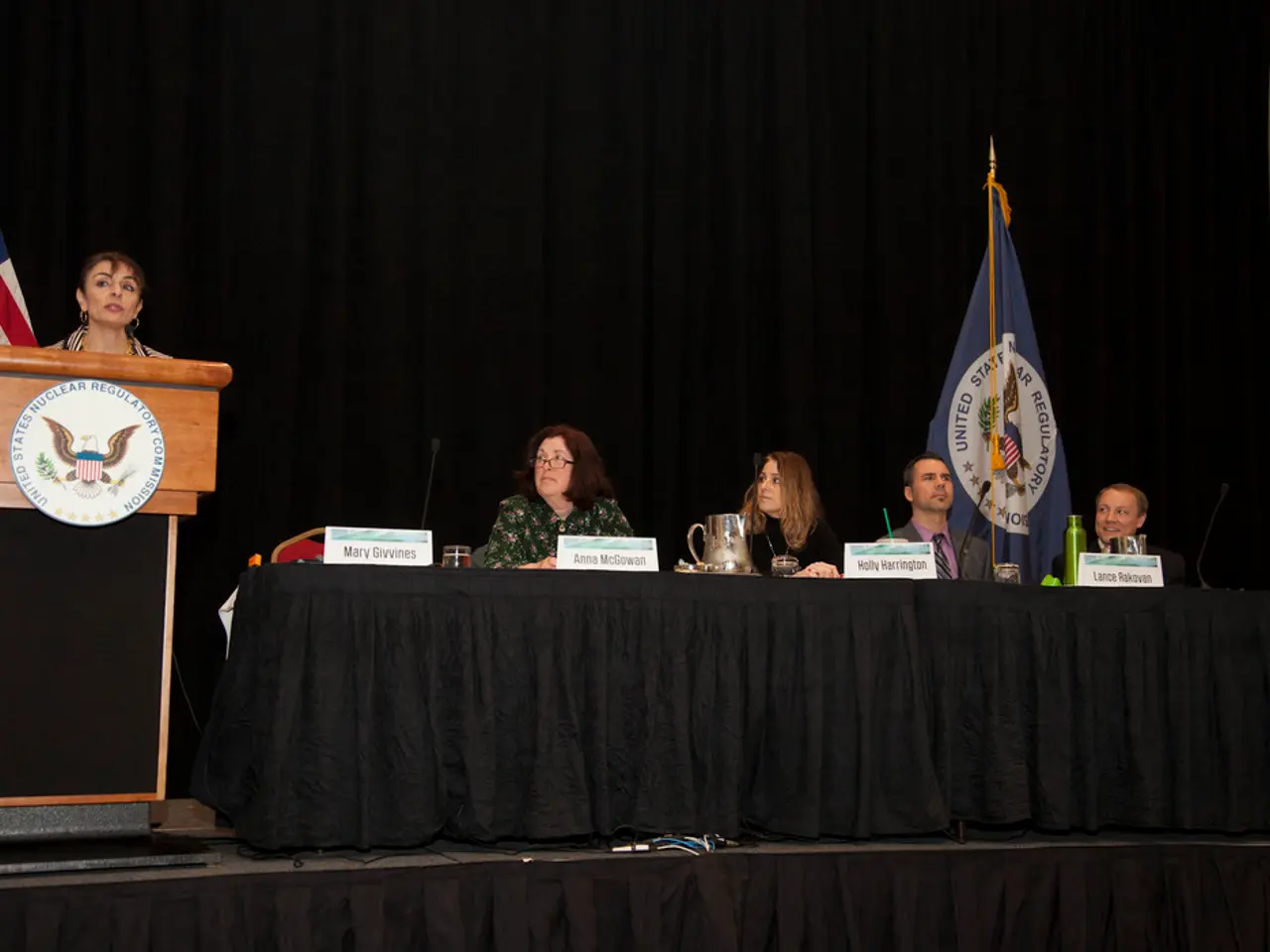U.S. immigration policy placing Christian refugees at risk of displacement
In the heart of Oklahoma, an Afghan Christian has been waiting more than six months for an update on his asylum application, fearing deportation and potential persecution in his native Afghanistan. This individual, who prefers to remain anonymous due to his immigration status, entered the U.S. through the CBP One app.
The situation of this Afghan refugee is not unique. Christian immigrants fleeing religious persecution in their home countries currently face significant risks of detention and deportation, despite often having no criminal record and being active contributors to their communities. This trend, exacerbated by recent immigration enforcement policies under the Trump administration and continuing under Biden, has resulted in arrests and detentions, including cases like Jesus Teran, a Venezuelan carpenter with no criminal record who complied with all immigration processes.
This reflects a broader trend of rescinded temporary protections that previously allowed many asylum-seekers from countries such as Venezuela, Cuba, Haiti, and Nicaragua—where religious and political persecution is prevalent—to remain legally in the U.S.
Efforts to ameliorate these issues are ongoing. For example, the bipartisan Dignity Act of 2025 seeks to offer undocumented immigrants meeting certain criteria (including those released from persecution) a pathway to permanent legal status contingent on fines and background checks. However, immigration enforcement agencies such as ICE have lifted prior restrictions on conducting arrests in sensitive locations such as churches, allowing for deportations even in places of worship.
The situation has caused alarm among Christian immigrant communities. For instance, Iranian Christians fear deportation to countries where they face potential execution for their faith, leading to job losses and community trauma. Many evangelical Christian leaders and congregations in the U.S. express moral support for these refugees and advocate for more protective immigration policies.
In Los Angeles, Pastor Ara Torosian and his congregation, which includes Iranian Christians who entered the U.S. to escape religious persecution in their home country, have been particularly affected. By the end of June, two families from Torosian's congregation notified him they were being detained by Immigration and Customs Enforcement (ICE). One couple and their child were released over the weekend, but they were placed in an alternative to detention program with an ankle monitor. The others remain in separate detention facilities.
Torosian's congregation is not alone. According to a report by World Relief and other Christian and immigration organizations, 8% of all Christians in the U.S., including Catholics and Evangelicals, are either personally at risk for deportation or are in a household with someone who is.
The stricter tone of the Trump administration's approach to immigration has disheartened some people who believed there would be some exceptions to Trump's goals of mass deportation, as World Relief's Soerens noted. A group of faith leaders even sent a letter and distributed petitions calling on the Trump administration to protect hundreds of Afghan Christians from deportation as their temporary protected status and other legal protections end.
Despite these challenges, there have been some positive developments. In June, the administration announced its new travel ban but included some exceptions, including immigrant visas for ethnic and religious minorities facing persecution in Iran. A small group of refugees was also recently allowed into the U.S. amid the legal challenges.
In fiscal year 2024, Christian denominations made up the largest group among refugee arrivals, according to the Department of State's Bureau of Population, Refugees and Migration. As the future unfolds, it is hoped that these vulnerable individuals will find safer pathways in the United States.
[1] Source: World Relief Report [2] Source: World Relief Report [3] Source: Congressional Research Service [4] Source: American Immigration Council [5] Source: Pew Research Center
- The bipartisan Dignity Act of 2025 proposes a pathway to permanent legal status for undocumented immigrants who have been released from religious persecution, provided they meet certain criteria and pass background checks.
- Iranian Christians, like Pastor Ara Torosian's congregation in Los Angeles, are increasingly fearful of deportation and potential execution in their home countries, leading to community trauma and job losses.
- Defi, ESG, and general-news context: The strict immigration policies under the Trump administration and continuing under Biden have resulted in a heightened risk of deportation for many Christian immigrants, a trend that has raised concerns among Christian immigrant communities and some faith leaders. These concerns are fueling conversations in financial and environmental circles, as the prospect of increased migrant flow due to migrant persecution could have broader socio-political and economic implications.





